|
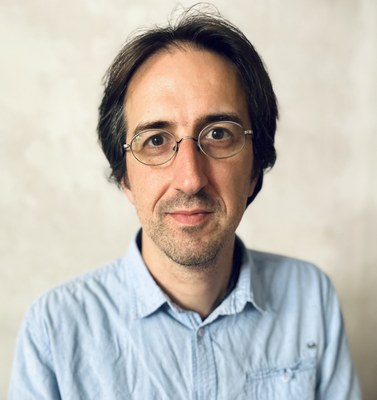
|
Jean Francois Chassagneux, Université Paris Cité
Jean-François Chassagneux has been a Professor in applied mathematics at Université Paris Cité since 2015, when he moved from his position as a Lecturer at Imperial College London. He is a member of the LPSM (Laboratoire de Probabilité, Statistiques et Modélisation) and a director of the Master 'M2MO' specialised in random modelling, finance and data science.
His research focuses on theoretical and numerical probabilistic methods for non-linear PDEs and non-linear processes in mathematical finance with applications to carbon market modelling, climate transition risk assessment, quantile hedging problem or large population stochastic control.
|
 |
Peter Forsyth, University of Waterloo
After graduating in 1979, Peter was a Senior Simulation Scientist at the Computer Modelling Group (CMG)
in Calgary, where he developed petroleum reservoir analytics. After leaving CMG, Peter was the founding President of software startup Dynamic Reservoir Systems (DRS), also in Calgary. Peter joined the University of Waterloo in 1987,
where he was a Professor in the Cheriton School of Computer Science. After 29 years, Peter officially retired from Waterloo in 2016, and is now a distnguished Professor Emeritus. Peter's current research focuses on Computational Finance. He is a member of the Editorial Board of Applied Mathematical Finance and the Journal of Computational Finance. During the years 2008-2013, he was the Editor-in-chief of the Journal of Computational Finance.
Peter is currently a director of Aquanty. Aquanty specializes in integrated modelling of three dimensional surface/subsurface water flows. These simulations forecast the impact of industrial activity and climate change on water resources.
|
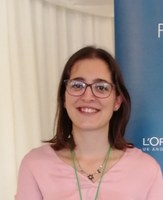 |
Susana Gomes, University of Warwick
Susana Gomes is an Associate Professor in Applied Mathematics at the University of Warwick, where she moved in 2018 after a PhD and postdoctoral positions at Imperial College London, and undergraduate and MSc degrees from the University of Coimbra in Portugal. Her research is specialised in the modelling, inference, and control for real-world problems, in particular problems in the physical, life, and social sciences modelled by partial differential equations. Susana has developed control methodologies in areas such as microfluidics, and has contributed to the development of inference methodologies for pedestrian dynamics and cell dynamics. She is involved in mentoring PhD students through being a PhD coordinator in one of Warwick’s doctoral training programmes (Mathematical Modelling for Real World Systems), and is an enthusiastic supporter of early career researcher and women in mathematics initiatives. |
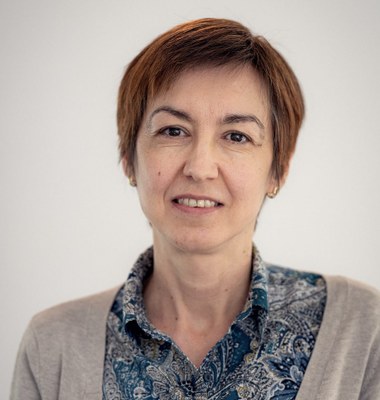 |
Laura Grigori, INRIA/ EPFL
Laura Grigori is a Full Professor at EPFL and PSI and Chair of high performance Numerical algorithms and simulations. She is a SIAM Fellow, the recipient of an ERC Synergy Grant, and a member of SIAM Council since January 2018. Her field of expertise is in numerical linear, multilinear algebra, and high performance scientific computing for challenging applications ranging from astrophysics to molecular simulations. For her work on
communication avoiding algorithms she was awarded with her co-authors the SIAM Siag on Supercomputing Best Paper Prize 2016 for the most outstanding paper published in 2012-2015 in a journal in the field of
high performance computing. She was the chair of PRACE Scientific Steering Committee, the Program Director of the SIAM special interest group on supercomputing, January 2014 - December 2015, then the Chair of this interest group, January 2016 - December 2017.
|
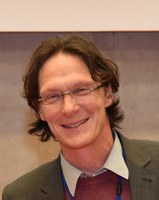 |
Sebastian Reich, University of Potsdam
Sebastian Reich is a professor of numerical analysis at the University of Potsdam and holds an honorary visiting professorship at Imperial College London. Starting in 2021, he has become one of two editors-in-chief of the SIAM ASA Journal on Uncertainty Quantification. The DFG established the Collaborative Research Center SFB 1294 Data Assimilation - The seamless integration of data and models at the University of Potsdam (coordinating university) jointly with the GFZ, WIAS, TU Berlin, HU Berlin, University of Magdeburg in July 2017 for an initial period of four years. He is the speaker of the center. The DFG has renewed the centre for another four years in 2021. He also participates in the Collaborative Research Centre SFB 1114 Scaling Cascades in Complex Systems at the Free University Berlin (coordinating university), Technical University Berlin, WIAS, GFZ, and the University of Potsdam.
The Isaac-Newton-Institute in Cambridge will host a 6-month programme on The mathematical and statistical foundation of future data-driven engineering in 2023. He is one of the initiators of the programme.
|
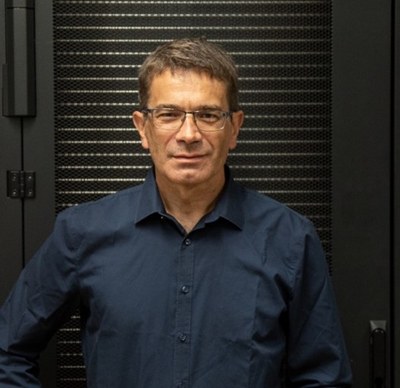 |
Gerhard Wellein, Friedrich-Alexander-Universität Erlangen-Nürnberg (FAU)
Gerhard Wellein is a Professor for High Performance Computing at the Department for Computer Science of the Friedrich-Alexander-Universität Erlangen-Nürnberg (FAU) and holds a PhD in theoretical physics from the University of Bayreuth. Since 2021 he is the director of the Erlangen National Center for High Performance Computing (NHR@FAU). He is a member of the board of directors of the German NHR-Alliance which coordinates the national HPC Tier-2 infrastructures at German universities.
Gerhard Wellein has more than twenty years of experience in teaching HPC techniques to students and scientists from computational science and engineering, is an external trainer in the Partnership for Advanced Computing in Europe (PRACE) and received the “2011 Informatics Europe Curriculum Best Practices Award” (together with Jan Treibig and Georg Hager) for outstanding teaching contributions. His research interests focus on performance modelling and performance engineering, architecture-specific code optimization, novel parallelization approaches and hardware-efficient building blocks for sparse linear algebra and stencil solvers. He has been conducting and leading numerous HPC projects.
|






